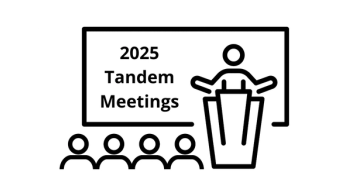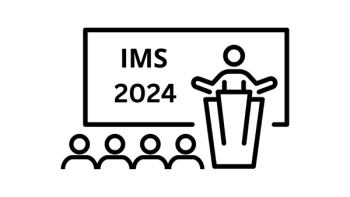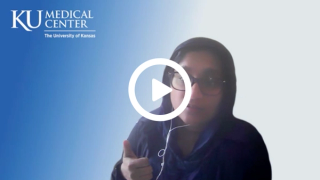
CAR T-Cell Therapy
Latest News
Latest Videos

CME Content
More News

In separate live virtual events, Sarah A. Holstein, MD, PhD, and Shashank Cingam, MD, discuss options for a patient with relapsed/refractory multiple myeloma and the use of chimeric antigen receptor (CAR) T-cell therapy.

Olalekan O Oluwole, MD, MBBS, discusses a study investigating shorter monitoring times post CAR T therapy.

The AERIAL trial will assess LEU011, which has MHRA Innovation Passport status, for solid tumors, a challenging area compared with hematologic cancers.

Frederick L. Locke, MD, discussed cema-cel's safety, efficacy, and potential for treating large B-cell lymphoma in earlier lines in the ALPHA trials.

During a live event, John L. Wagner, MD, moderated a discussion on when to refer patients for CAR T-cell therapy and what challenges the referral process poses.

During a Case-Based Roundtable® event, Natalie Galanina, MD, reviewed how outcomes have changed in patients with primary refractory or early relapsed DBLCL since the introduction of CAR T-cell therapy.

During a Case-Based Roundtable® event, Natalie Galanina, MD, discussed data from the ZUMA-7 and TRANSFORM trials in the first article of a 2-part series.

Poor physical performance in patients with non-Hodgkin lymphoma receiving CAR T-cell therapy was linked to worse survival and increased risk of neurotoxicity in a cohort study.

CAR T-cell therapy showed efficacy in relapsed large B-cell lymphoma across age groups, including patients 70 and 80 years or older.

Obecabtagene autoleucel improved survival and response durability in B-cell acute lymphoblastic leukemia patients with minimal residual disease–negative remission.

NKTR-255 with CD19 chimeric antigen receptor T-cell therapy improved 6-month complete response rates in relapsed/refractory large B-cell lymphoma.

Anakinra failed to reduce cytokine release syndrome or immune effector cell–associated neurotoxicity in patients with large B-cell lymphoma receiving liso-cel.

A phase 1 trial evaluating FSHR-targeting CAR T cells for patients with ovarian cancer has dosed the first patient in its third cohort.

The advent of cellular therapies, such as chimeric antigen receptor T-cell therapy, has revolutionized the field of hematologic malignancies.

MT-303, a novel GPC3-targeting mRNA/lipid nanoparticle chimeric antigen receptor therapy, enhances cytokine-driven immune response and tumor cytotoxicity.

Doris K. Hansen, MD, discussed a comprehensive analysis of pretreatment biomarkers associated with outcomes in patients receiving idecabtagene vicleucel therapy

Second-line treatment with lisocabtagene maraleucel in relapsed/refractory LBCL has safety and efficacy outcomes similar to those in the trials supporting its FDA approval.

Outpatient lymphodepletion before brexucabtagene autoleucel was safe and showed similar non-relapse mortality compared with inpatient administration in B-ALL and MCL.

The phase 2 ZUMA-2 trial demonstrated that brexucabtagene autoleucel led to a high objective response rate in patients with relapsed/refractory mantle cell lymphoma.

Phase 1 trial findings showed that GD2-CAR T-cell therapy induced significant tumor regressions and neurological improvements in patients with H3K27M-mutant diffuse midline gliomas.

Ibrahim N. Muhsen, MD, evaluated the efficacy of brexu-cel in adult patients with central nervous system involvement in relapsed/refractory B-cell acute lymphoblastic leukemia.

A pivotal phase 2 trial of WU-CART-007, an anti-CD7 CAR T-cell therapy for relapsed/refractory T-cell acute lymphoblastic leukemia or T-cell lymphoblastic lymphoma treatment, will begin in 2025.


The FDA has lifted clinical holds on trials of zevor-cel, satri-cel, and CT071, and trials will now resume in the US.

A single infusion of the autologous GPRC5D-targeted CAR T-cell therapy BMS-986393 led to high response rates in patients with relapsed/refractory multiple myeloma who received between 1 and 3 prior lines of therapy.


























